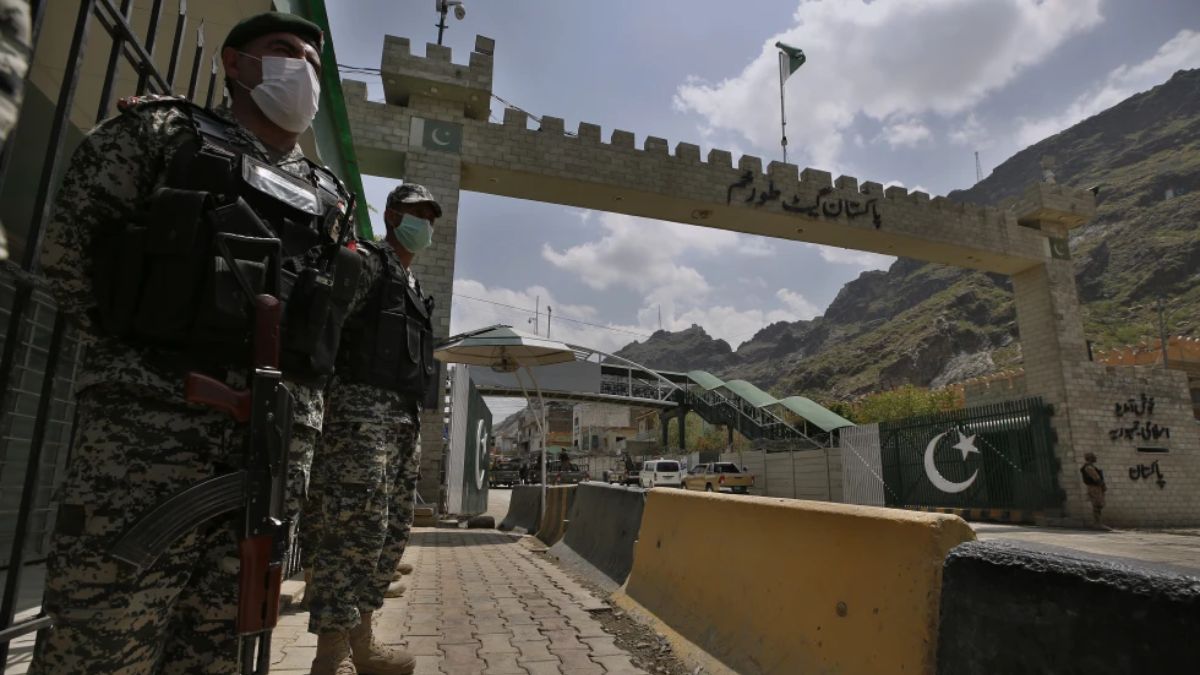Pakistani and Afghan forces exchanged fire overnight at the Torkham border crossing in the Khyber-Paktunkhwa province, officials said Monday (March 3), as tensions over a trade dispute escalated into violence.
The latest clash left at least one Afghan security officer dead and another wounded.
The firefight happened because of ongoing friction between the two neighbours over border management– the Torkham crossing, a key passage, has been shut since late February.
The dispute is hurting the Taliban regime where it hurts– the wallet.
A money matter
The Torkham crossing, one of two main trade corridors between Pakistan and landlocked Afghanistan, has been closed for 11 days after Islamabad objected to the construction of a new checkpoint on the Afghan side. The dispute has left thousands of trucks and travellers stranded on both sides amid harsh winter conditions.
Shakirullah Safi, chief executive of the Nangarhar Chamber of Commerce and Investment, said the closure was costing Afghan traders nearly $500,000 per day.
“When this gate is open, 600 to 700 vehicles travel between us and Pakistan carrying exports and imports,” Safi said. “Now, 5,000 containers are stuck on both sides, bringing trade to a halt.”
The blockade has also affected thousands of Afghans who cross daily to seek medical care or work in Pakistan’s border towns.
Pakistan, Taliban trade blame
A Pakistani official said Taliban security forces fired unprovoked at Pakistan’s border post with automatic weapons, prompting Pakistani forces to return fire.
Afghan officials rejected the claim. Interior Ministry spokesman Abdul Mateen Qani accused Pakistani forces of initiating the violence, saying Afghan border police attempted to resolve the matter through dialogue before responding defensively.
He claimed Pakistani personnel suffered casualties but did not provide figures.
Pakistan’s security concerns in Khyber Pakhtunkhwa
Tensions between Pakistan and Afghanistan have worsened in recent years– a product of Islamabad’s dangerous regional gamble going wrong. Consequently, Pakistan’s Khyber Pakhtunkhwa province, which borders Afghanistan, has faced growing instability.
The region, once a hub for militant groups supported by Pakistan to advance its geopolitical interests in Afghanistan and Kashmir, has become a stronghold for the Tehrik-i-Taliban Pakistan (TTP). Better known as Pakistan Taliban, this militant group’s stated aim is the overthrow of the elected government of Pakistan in order to establish an emirate based on its interpretation of Islamic law.
Impact Shorts
More ShortsPakistan had hoped that the Taliban’s return to power in Afghanistan in 2021 would help curb the activities of TTP. Islamabad had been one of the first to voice support for the Taliban regime when it came to power in 2021.
However, this move has backfired spectacularly. The TTP has grown stronger, with its attacks on Pakistani forces tripling since 2021, according to the Jihad and Terrorism Threat Monitor.
Islamabad has repeatedly urged the Taliban to take action against TTP, but Afghan leaders have shown little willingness to intervene. In fact, after seizing Kabul, the Taliban released hundreds of TTP fighters from Afghan prisons, further emboldening the group.
With inputs from AFP


)

)
)
)
)
)
)
)
)



